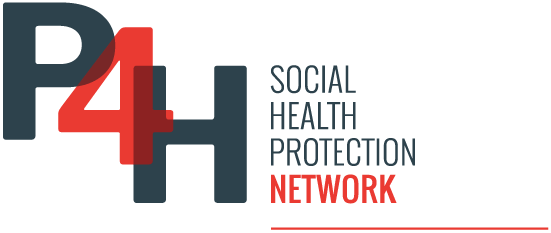The number of documents available on the P4H Network’s digital platform reflects the network’s scope of work. The majority of documents are primary source materials created by country nationals or resources produced by organizations working in social health protection (SHP) and/or health financing (HF).
Evaluation of the PBF health project in CAR
This report evaluates Cordaid's Performance-Based Financing (PBF) driven health project in Nana Mambéré prefecture, health region 2, during the political and humanitarian crisis from March 2013 until May 2014 to see if PBF was able to respond to the emergency...
National health accounts report from 2015 to 2018 in CAR
Health accounts are a tool for systematically, consistently and exhaustively tracking the flow of resources in a country's healthcare system. In the CAR, they are drawn up on a regular basis and make it possible to assess the total amount allocated to healthcare...
National Community Health Policy CAR 2020-2030
The community health policy stems from the presidential impetus for the CSU, where we note a preoccupation with bringing care closer to the population, guided by equity and the concern to spare families from certain expenses linked to distance and delays in care.The...
CAR National Health Development Plan 2022-2026
The third-generation National Health Development Plan 2022-2026 (PNDS III) sets itself the challenge of reversing the current high levels of maternal mortality, infant mortality and neonatal mortality, in order to improve the life expectancy of Central Africans. The...
The inclusion of diagnostics in national health insurance schemes in Cambodia, India, Indonesia, Nepal, Pakistan, Philippines and Viet Nam
Access to diagnostic testing, particularly basic tests at the primary care level, exhibits a notable disparity within low-income and middle-income countries (LMICs). It is crucial for these countries to incorporate diagnostics into their universal health coverage...
Law determining the Fundamental Principles of Health
Law 2022-34 lays down the essential rules governing public health and hygiene in the Republic of Niger. It was adopted by the French President on July 11, 2022. Having heard the Council of Ministers, the National Assembly deliberates and adopts, the President of the...
National social protection policy in Niger
The Government's adoption of the National Social Protection Policy reflects its desire and commitment to promote a new form of governance that encourages public authorities to accept and assume full responsibility for providing more extensive social protection...
Strengthening MSP/P/AS management in Niger
L'objectif du présent cahier des charges est de créer une vision commune et un récit qui donnera un sens à l'action et alimentera les réformes en cours ou prévues par le SSDP, qui doivent elles-mêmes être fondées sur des capacités renforcées, notamment pour les...
Collection of health legislation in Niger
La réalisation d'un Recueil de Législation Sanitaire répond au souci de faire connaître aux professionnels de la santé, aux services et établissements sanitaires et à toute personne intéressée, les principaux textes juridiques qui régissent le domaine de la...
National strategy for financing free health care in Niger
This strategy, based on linking the FBR to free healthcare and stimulating demand for healthcare through the FBR Communautaire, has been drawn up to guide the Nigerien government and its partners on strategic and harmonized implementation methods.
Mapping health financing in Niger
The Republic of Niger joined the GFF in July 2019. The Nigerien government welcomed this partnership as an opportunity to improve the cost-effectiveness and equity of healthcare spending (both public and external) by aligning it with national priorities centered on...
National Health Accounts for Niger-2021
The aim of this report, covering the year 2021, is to analyze national healthcare expenditure globally, and to produce specific sub-accounts for certain diseases and conditions of greatest concern to the healthcare sector.
Presentation of INAM Niger
INAM: A central tool in the reform of free health care and health financing in Niger. It was under this theme that INAM's Managing Director presented the institute to the National Assembly on November 17, 2023.
Reflecting on the creation of a Virtual Common Fund for free admission
The National Institute of Medical Assistance has organized a day of reflection with a view to setting up a Virtual Common Fund for free healthcare on April 15, 2023. The aim is to initiate mobilization to define the technical and administrative foundations of a FCV,...
Transitional measures for the reimbursement of free health care in Niger
This working paper has been produced on the physical verification approach in health facilities. The aim is to ensure reimbursement of the costs associated with free health care in the 2023 health facilities, after monitoring and verifying the effectiveness of the...
